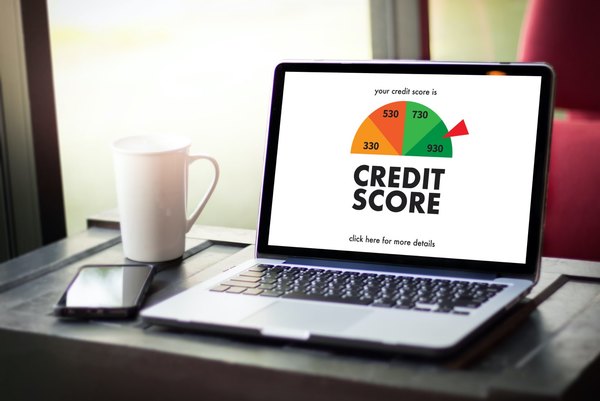Your credit score is an essential part of your financial health. But what if you have no credit? Here's how to build credit when you have none.
You're finally out on your own and ready to secure your first apartment, loan, or credit card.
The only problem? You don't have any credit.
Before you can make those big moves, you'll need to prove to a lender (or lessor) that you're financially responsible, and your credit score will be the first place they check.
If it comes up completely empty, it could hinder your chances of moving forward with the application.
The good news? You don't have to tear it up and count your losses. Learn how to build credit when you have none today.
Why Is It Important to Have Credit History?
In short, your credit history is a record of your financial integrity.
Before you apply for a loan or credit card, your lender will check your score to see how trustworthy you've been with any money a creditor has extended to you. A low score means you're more likely to default on a credit card or loan application, while a high score indicates the opposite.
That's why it becomes challenging when you have no credit history at all.
How can a lender know that you'll pay on time, in full, if you've never had to do so in the past? Stable credit history is one of your most powerful tools when you're ready to take out a loan or open a credit card.
If your credit history is negative or non-existent, it could affect your life in myriad ways, making it more difficult to:
- Get a job
- Secure more favorable utility, phone, and insurance rates
- Buy or rent a home
- Take out a loan
That's why it's smart to start building yours today! Below are a few of the most effective routes you can take.

Become an Authorized User
A simple and free way to build credit without taking out a traditional loan is to become an authorized user on someone else's account. See if a family member or your partner is willing to add you to their credit card as an authorized user.
If you join, any payment history associated with the card will be automatically linked to your credit file, as well. That's why it's important to team up with someone who already has an excellent payment history and plans to maintain it moving forward!
The best part? You don't have to use the card to benefit from it. You don't even need to keep it in your possession.
One caveat: before you sign on the dotted line, ask the cardholder to double-check with the card issuer to ensure all authorized user activity is reported to the three main credit bureaus: Equifax, Experian, and TransUnion.
It should be, but in the rare instance that it isn't, your credit-building efforts could be more difficult than they have to be.
Start with a Secured Card
If you have no credit history to your name, you'll likely begin your journey by opening up a secured credit card.
With a secured card, you'll put down a cash deposit first. In most cases, the amount you'll pay is equal to your credit limit. Look for one that has a low annual fee and verify that it reports your activity to the three credit bureaus.
A secured card functions the same as a standard credit card. You can use it to buy things, and you'll incur interest if you don't pay your balance in full. When you're ready to close the account, you'll get your initial deposit back.
This can be an ideal way to start building credit by establishing a history of paying your monthly bill on time. Yet, keep in mind that you aren't meant to use a secured credit card forever. Instead, it's designed to be a starting point, allowing you to build up your credit enough to qualify for an unsecured card. Not only do those cards have better benefits, but they don't require a security deposit!

Open a Store Charge Card
You might not have a credit card yet, but you can still go shopping – if you have a few stores that you shop at regularly, ask about opening a charge account there.
Most stores that offer such cards will allow you to join their program with little to no credit history. They'll only hesitate or deny your application if they find negative information in your credit report.
While these cards don't offer incredible interest rates or huge lines of credit, they will help you build credit when you need it. Just make sure to start with small purchases, and pay your entire balance on time to avoid any interest charges that could work against you.
Apply for a Credit Builder Loan
This kind of loan works exactly as its name implies. The sole purpose of a credit building loan is to help you build credit.
Usually, the lender will hold the money you borrow in a specific bank account while you make payments. You won't receive that money back until the loan is repaid.
In this way, it forces you to spend and save wisely. Your lender will report your payments to the credit bureaus, allowing you to generate a credit history from scratch.
Keep an Eye on Your Credit
Once you begin establishing credit, it's essential to monitor it closely. This way, you can be encouraged by your progress! You can also spot and remediate any issues as soon as they pop up.
You can get a free consumer credit report from any of the three reporting bureaus once a year. In addition, there are also secondary services that provide insight into your creditworthiness. These include personal finance companies such as Credit Karma and Credit Sesame.
How to Build Credit When You Have None? Start Today!
Building your credit from the ground up can feel like a massive undertaking, but it doesn't have to be.
Any of the programs listed above are excellent starting points when you're just starting. Regardless of which route you take, make sure to maintain timely payments to help your score grow as high as it can.






